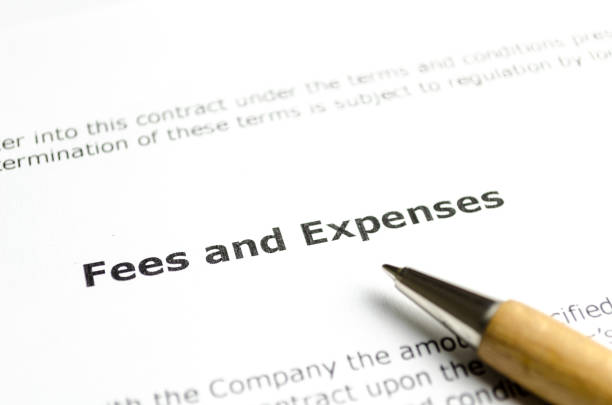In today’s fast-paced world, navigating the legal landscape is an essential aspect of our lives. Whether you’re a business owner, an individual dealing with personal matters, or just curious about the intricacies of the law, understanding legal expenses is crucial. In this comprehensive guide, we will delve into the world of legal expenses, breaking down the terminology, costs, and common scenarios.
What Are Legal Expenses?
Legal expenses encompass all the costs associated with obtaining legal representation and legal issues. These expenses can vary widely depending on the nature and complexity of the case. It’s important to note that legal expenses are not limited to attorney fees but also include court costs, legal aid, and other related expenditures.
Types of Legal Expenses
Attorney’s Fees
Attorney’s fees are the charges incurred for the services provided by legal professionals. These fees can vary based on the attorney’s experience, reputation, and the nature of the case.
Court Costs
Court costs include fees associated with filing documents, court appearances, and other administrative expenses related to legal proceedings.
Legal Aid
Legal aid is a crucial service that provides free or low-cost legal representation to individuals who cannot afford private attorneys. It plays a vital role in ensuring access to justice for all.
Factors Affecting Legal Expenses
Complexity of the Case
The complexity of a case often correlates with higher legal expenses. Cases involving intricate legal issues or lengthy court battles tend to incur more significant costs.
Attorney’s Experience
Experienced attorneys typically charge higher fees. However, their expertise can be invaluable in achieving favorable outcomes.
Geographic Location
Legal expenses can vary based on your geographic location. In urban areas, legal services may be more expensive than in rural regions.
Managing Legal Expenses
Legal Insurance
Legal insurance is a service that helps cover legal expenses. It can be a cost-effective way to mitigate the financial burden of legal matters.
Budgeting
Creating a budget for expenses can help you plan for and manage the costs associated with legal issues effectively.
Negotiating Fees
In some cases, you may be able to negotiate attorney fees or explore alternative fee arrangements, such as contingency fees or pro bono services.
Common Legal Scenarios
Criminal Defense
When facing criminal charges, legal expenses can escalate quickly. It’s essential to understand your rights and seek legal representation promptly.
Family Law
Family law cases, including divorce and child custody disputes, can involve substantial legal expenses. Consulting with an attorney early in the process can help you make informed decisions.
Business Matters
Legally expenses are a common part of running a business. From contract disputes to employment issues, businesses often require legal guidance.
Legal Expenses and Small Businesses
Small businesses should be particularly vigilant about managing legal expenses. Understanding the potential legal challenges and having a legal strategy in place can save both time and money in the long run.
Legal Expenses vs. Legal Aid
While legallly expenses can be substantial, legally aid provides an essential safety net for those with limited financial resources. Exploring your options and seeking legal aid when eligible is crucial.
Tax Implications of Legal Expenses
Legal expenses may have tax implications, and in some cases, they can be deductible. It’s advisable to consult with a tax professional to understand how legal expenses affect your tax situation.
The Importance of Legal Expense Management
Effective legal expense management is essential for individuals and businesses alike. By proactively addressing matters and managing expenses, you can navigate the system with confidence.
Strategies for Effective Legal Expense Management
Managing strategies is not only about understanding the costs but also about finding ways to minimize them without compromising the quality of representation. Here are some strategies to help you navigate more efficiently:
1. Early Legal Consultation
Seeking legal advice at the early stages of a legal issue can help you avoid costly mistakes. By addressing problems proactively, you may prevent them from escalating into more complex and expensive matters.
2. Legal Insurance
Consider investing in insurance, which provides coverage for expenses. It’s like having a safety net in case you encounter unexpected legal challenges. Legal insurance plans often cover a range of legal issues, from personal matters to small business needs.
3. Fee Agreements
When hiring an attorney, discuss fee arrangements upfront. Some attorneys may offer flat fees for specific services, hourly rates, or contingency fee agreements (common in personal injury cases). Understanding the fee structure and negotiating when possible can save you money.
4. Legal Aid and Pro Bono Services
If you qualify for legal aid or pro bono services, take advantage of these resources. Many legal professionals dedicate their time to assisting individuals with limited financial means. These services can significantly reduce your expenses.
5. Alternative Dispute Resolution (ADR)
Consider alternative dispute resolution methods, such as mediation or arbitration, which can be faster and more cost-effective than going to court. These methods often result in mutually agreed-upon solutions, saving both time and money.
6. Legal Expense Budget
Create a budget specifically for expenses. Having a clear understanding of your financial limitations can help you make informed decisions about when and how to pursue legal matters.
7. Document Management
Maintain organized records related to your legal matters. This includes contracts, correspondence, and receipts for expenses. Being organized can save you money on legal research and administrative costs.
8. Second Opinions
Don’t hesitate to seek a second opinion from another attorney if you have doubts about your current legal representation or the advice you’ve received. It’s essential to have confidence in your legal team.
Conclusion
This expenses are an inevitable part of life, and they can vary greatly depending on individual circumstances. However, by understanding the types of legal fees, the factors that affect costs, and implementing effective expense management strategies, you can navigate the legal system with confidence and financial prudence.
Remember that legal issues are best addressed promptly and with the guidance of qualified legal professionals. Properly managing your expenses ensures that you protect your rights, interests, and financial well-being while facing challenges.

